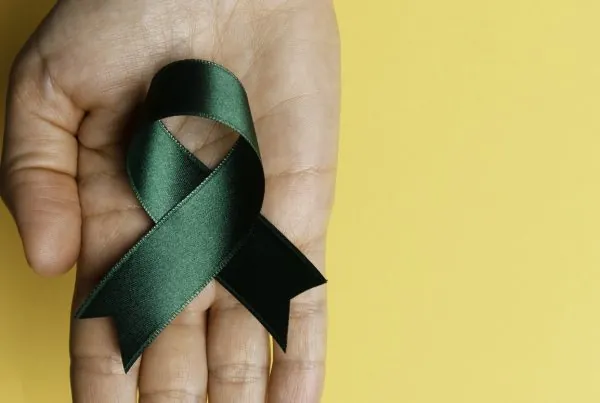Mental health facilities for teens and adults are treatment clinics, residential programs and/or clinics, psychiatric hospitals, and community-based mental health centers that specialize in addressing, diagnosing, and treating psychiatric conditions, including depression, anxiety, psychosis, and substance use. Despite an increase in demand, mental health resources continue to be scarce, and both adults and adolescents are not receiving the care they need.
Statistics estimate that as many as 35 percent of adults with severe, debilitating mental health issues do not receive any treatment for their condition, and over half of adults with a mental health issue of any kind receive no care. For teens, the stats aren’t much better.
The National Alliance on Mental Illness estimates that the average delay between onset and treatment in the US is 11 years. That’s over a decade spent living with symptoms without the necessary professional guidance or pharmacological help that could reduce symptom severity, and greatly improve a patient’s quality of life.
Getting access to care can be difficult, in part due to stigma, and in part due to associated costs. Different mental health facilities exist to ease that burden and help break down some of these barriers. Some places specialize in providing as much access to necessary care as possible, while others further specialize in addressing individual concerns, such as substance use with co-occurring mental health issues in teens.
Mental health facilities are not always needed to get the necessary treatment for your teen. Individual psychiatrists and therapists can help refer your teen to a professional diagnosis, and get them access to the care they need, whether it is a prescription for mood stabilizers or a long-term therapeutic treatment plan. But when they are needed, they can be true life savers.
What Are Mental Health Facilities for Teens?
In the United States, mental health facilities can generally be split between outpatient facilities and inpatient facilities.
Outpatient Facilities
Outpatient facilities are places you go to for treatment. You make an appointment, or receive a treatment schedule, and you attend treatment regularly. These may be a clinical setting where a therapist works, receiving your teen on a weekly basis for cognitive behavioral therapy.
Some outpatient programs are more intensive than others. In some cases, teens might be brought to an outpatient facility, but may be required to visit three to four times a week, for as many as four or five hours a day.
Inpatient Facilities
Inpatient facilities are places where patients receive room and board in addition to treatment. They might be a clinical or hospital setting, or they might be a more long-term residential setting. Short-term treatment at a psychiatric hospital might be necessary for someone with a condition that makes them much more likely to engage in self-harm for a period of time, for example.
In some cases, conditions like schizophrenia can cause people to perceive things around them differently, whether it’s through auditory or visual hallucinations or convincing delusions. A clinical inpatient setting can ensure that a teen remains safe during this episode.
Primary Residential Facilities
Residential facilities are more home-like, utilizing residential spaces and repurposing them into places for teens to live in while they receive care. This may be necessary in cases where a teen’s environment is contributing to their illness, such as an addiction, where nearly everything familiar can be a trigger, or in cases where a teen’s peers are making it difficult to stay sober.
Inpatient programs might be necessary for teens with specific cases of severe mental illness, but they are not a kind of prison or an internment camp.
All treatment is ultimately voluntary unless court-mandated after illegal activity. This is important, because it sets itself apart from the more harrowing histories of previous mental health facilities. Psychiatric asylums, or psychiatric state hospitals, no longer exist in the United States.
Private Treatment Facilities
That being said, private treatment facilities for mental health issues can be expensive. It is important to know when your teen should consider seeking residential or outpatient treatment, and when they shouldn’t. Your best bet is to consult a medical professional to find out. Only your teen’s psychiatrist or therapist will be able to make the best call as to whether they need long-term outpatient treatment, or even an inpatient treatment plan.
When Is Inpatient Treatment Needed?
Inpatient treatment may be recommended in cases where a teen needs a stable and safe environment with a professional staff, such as severe cases of bipolar disorder, depression with suicidal ideation, schizophrenia, and PTSD (post-traumatic stress disorder).
Inpatient treatment may also be recommended in cases of substance use disorder. Substance use can involve painful withdrawal symptoms, a medically dangerous detoxification process, and intense drug cravings.
Inpatient facilities equipped to deal with substance use will be staffed by multiple physicians, psychiatrists, nurses, and therapists, each committed to providing a high level of care to your teen as they go through detox, withdrawal, and the early stages of rehabilitation.
Inpatient drug use programs typically last around four weeks but can last longer. In addition to helping teens wean off drugs, these programs also help them reintegrate into life without drugs, focusing on incorporating and building healthy coping skills and other tools that might help them throughout sobriety. After inpatient treatment, a teen may be required or recommended to an outpatient program to continue their recovery education and their therapy. Support groups can help, as well.
What Is a Psychiatric Hospital?
Psychiatric hospitals are different from residential inpatient programs or a partial hospitalization program. These are clinical settings where medical professionals focus on patient care on a day-to-day basis, like any other hospital – but with a focus on psychiatric conditions and severe mental health issues. Psychiatric hospitals aren’t long-term treatment facilities – patients may be interned after hurting themselves or landing themselves in the hospital and are free to go after a few days or weeks.
When Should I Seek Help for My Teen?
If your teen comes forward to you about not feeling well, or about having a hard time recently, it’s important to entertain the idea of seeing a professional if things don’t get better.
We all want to be there for our children, and we all want to help. But there are times when certain thoughts and moods crop up, and we don’t have the power to make them go away.
Professional treatment can help your teen improve their quality of life and regain control. Sometimes, that might involve working with someone through a mental health facility.
If you’re interested in learning more about mental health facilities for teens with substance abuse or other mental health issues, reach out for help. Our professional staff at Visions Treatment Centers is here for you and your teen.








